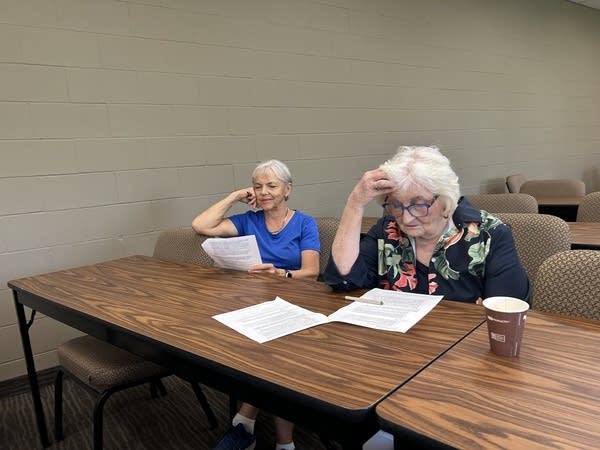How to talk to kids about politics without divisive rhetoric

Go Deeper.
Create an account or log in to save stories.
Like this?
Thanks for liking this story! We have added it to a list of your favorite stories.
Pam Thiemann is grateful to have her extended family all living close to her home in Plymouth. She and her husband have four grown kids and three grandsons, who are six, nine and 14.
Thiemann said the whole family gets together once or twice a week as a group, and conversations about politics can get tense, especially when bad news comes up, like the recent assassination of former Minnesota House Speaker Melissa Hortman and her husband Mark.
“I don’t want my grandchildren just freaking out having bad dreams,” she said.
So she recently attended a workshop geared towards helping parents navigate political conversations without anger, divisive rhetoric and polarization. Thiemann went into the session hoping to learn “what to say and how to calm them when maybe I'm not feeling very calm, how to communicate that things are going to be okay for them.”
Turn Up Your Support
MPR News helps you turn down the noise and build shared understanding. Turn up your support for this public resource and keep trusted journalism accessible to all.
Braver Angels, an organization focused on bridging political divides, held the recent workshop in the basement of Lord of Life Lutheran Church in Maple Grove.
Braver Angels co-founder Bill Doherty walked through some of the do’s and don’ts of talking about politics with kids.
He said small children, in particular, do need reassurance that they are safe and don’t have to worry about scary political events.
And, he said, it’s important not to demonize people in the other political camp, including party leaders.
“If we say, ‘Not only I don’t like that leader, but the people who vote for that leader are stupid, are bad people,’ this sets up children to be rigid thinkers,” he said.
And disparaging the ‘other side’ could cause problems if the child ends up agreeing with that side’s views.
“They're going to wonder what you think of them,” said Doherty.
Doherty said when a kid asks about politics, it’s important to understand the context of their questions. Then, the adult should try to show empathy towards the child's perspective before sharing their own opinion.
He asked the workshop participants to follow that guidance when responding to some prompts. One prompt involved a child saying the current immigration situation is awful.
“There’s been so many things happening with immigrants,” Pam Thiemann said, practicing a response. “What have you heard is happening to immigrants?”
Doherty lauded her approach.
“Find out what the person is talking about. Was it a particular thing they read on the news? Is it factually accurate?” he asked.

Next, Thiemann formulated how she’d express sympathy for the child’s concerns. And then she composed a way to frame the immigration debate more broadly.
“Some people are feeling that we have as many immigrants in our country already that we can care for and take care of,” she said. “But I feel like we actually can welcome a lot more immigrants. And as a matter of fact, I also believe that immigrants help our society.”
Another grandparent, Joan Boger, brought up a real life situation related to immigration. Boger said her daughter’s family had a foreign exchange student from Brazil who’d like to return to the U.S. for a visit. But Boger said the young woman could not get a visa due to the Trump administration’s crackdown on immigration, which includes strict limits on visas. This upset her granddaughters.
“I said, ‘Well, we have to understand, you know, this is going on in the country. You know, these are the rules,’” she explained.
Then she shifted to a tone of reassurance, while still making her point about the rule of law.
“Maybe next year, it will be worked out and Lorena can come over and see you,” she said. “But you know we have to try to make things right in the way that the country is setting up rules.”
The two grandmothers had different opinions about the immigration debate. But Doherty said they both had respectful approaches. He said they both made positive statements about their own values and didn't badmouth the other side in the process.
“And that is engaging other perspectives thoughtfully,” he said.
Doherty cautioned the group not to worry too much if they botch a political conversation with a kid, reminding them they will likely have many new opportunities to try again.




